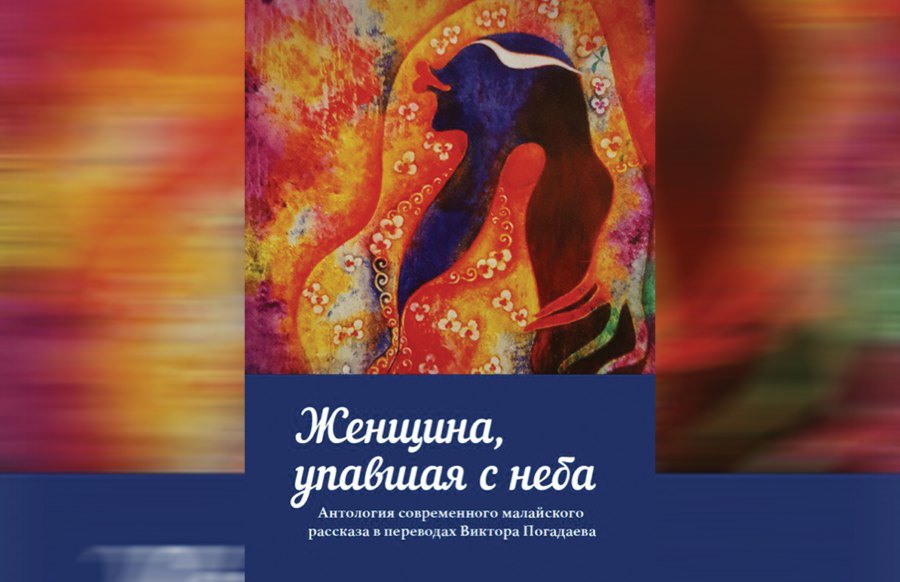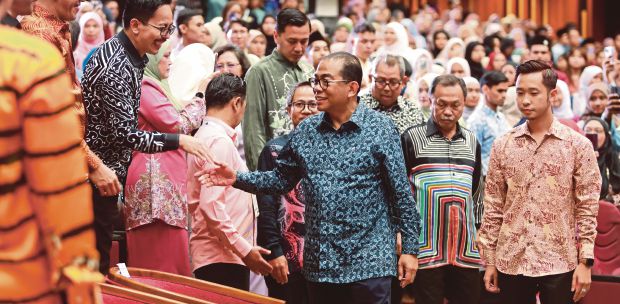Malay was first noticed in the 18th century when, by order of Queen Catherine the Great, a comparative dictionary of 180 languages and dialects, including Malay, was compiled and published.
Malay language learning and in-depth research began in the 20th century. The initiators of the research were Lyudmila Mervart (1888-1965) in the field of language and culture, and Alexander Guber (1902-1971) in the social and political fields.
Their efforts produced excellent results. In the 1950s, Malay, for the first time, was taught in several higher learning institutions, including the Military Institute of Foreign Languages, the Institute of International Relations and the Institute of Oriental Languages at Lomonosov Moscow State University.
In the decades since, a "school of Malay studies" was formed with experts in linguistics, literature, history, lexicography, culture and ethnography.
Russian scholars have received positive response from international scientists after successfully working on Indonesian Grammar (1972), History of Malay Literature (1983), Russian-Malaysian Dictionary (1986), Big Dictionary of Indonesian (1990), History of Malaysia (2010), Great Malay-Russian Dictionary (2014) and New Malay-Russian-Russian-Malay Dictionary (2016).
Intensive study of the Malay language and the publication of large Malay-Russian dictionaries, not inferior in volume to Kamus Dewan prepared by Dewan Bahasa dan Pustaka in Malaysia, allowed Russian specialists to begin active work on the translation of Malay classical literature.
Thanks to mainly Dr Boris Parnickel and Dr Liubov Goriaeva, several major works of Malay classics (Hikayat Hang Tuah, Hikayat Seri Rama, Hikayat Sang Boma, Sejarah Melayu, Hikayat Maharaja Marakarma, Hikayat Pandawa Jaya and Hikayat Raja-Raja Pasai) were translated and published in Russian.
Russian readers can enjoy the works of contemporary Malaysian writers and poets in Russian translation, too. The Malaysian Lexicon of Literature, published this year, mentions 71 publications in Russian of works by Malaysian authors.
The initiator of the first translation was Parnickel, who, in 1962, translated several short stories by Usman Awang and A. Samad Ismail (Di Tepi Jalan, 1962).
After that, the short story anthology Perbuatan Mulia (1973); Malaysian Modern Short Stories (1977); Usman Awang's Tulang-Tulang Berserakan (1984); Shahnon Ahmad's Seluang Menodak Baung (1987); Anwar Ridhwan's Narratif Ogonshoto (2006) and many others were published in Russia.
Russian readers also welcome the translation of Malay poetry, which showcased the richness of Malay poems.
They include verses and excerpts from Syair Ken Tambuhan and Syair Siti Zubaidah to modern poetry by Usman Awang, A Samad Said, Kassim Ahmad, A Latif Mohidin, Baha Zain, Muhammad Haji Saleh, Siti Zainon Ismail, Kemala, Zurinah Hassan, Suhaimi Haji Muhamad, Sutung Umar, A. Ghafar Ibrahim, Jihati Abadi, Anis Sabirin, Jaafa H.S., Firdaus Abdullah, Shafie Abu Bakar, Adi Badiozaman Tuah, Rahman Shaari, Rejab FI, A. Wahab Ali, T Alias Taib, J.M. Aziz, Zaihasra, Dharmawijaya, Wan A. Rafar, Shamsuddin Jaafar, Mansor Ahmad Saman, Abdulhadi Muhamad, Ahmad Razal and Lim Swee Tin.
A collection of poems by female authors, Bunga-Bunga dari Pantai Jauh, was published in 2019 followed by a series of Malaysian folk tales in two languages in collaboration with Gapena in 2020.
Malay is used as the medium of communication in several conferences and seminars in Moscow and St Petersburg.
With the establishment of the Nusantara Society and the opening of the Nusantara Centre at Moscow State University, the Malay language and studies in Russia spread even more.
And, of course, increased attention to the national language in the country, stressed in several speeches by Prime Minister Datuk Seri Ismail Sabri Yaakob, as well as the holding of an international symposium on the Malay language next week, will serve as a significant incentive for teachers and students to intensify the study and research of Malay in Russia.
The writer, writing from Russia, is a former lecturer of Universiti Malaya





